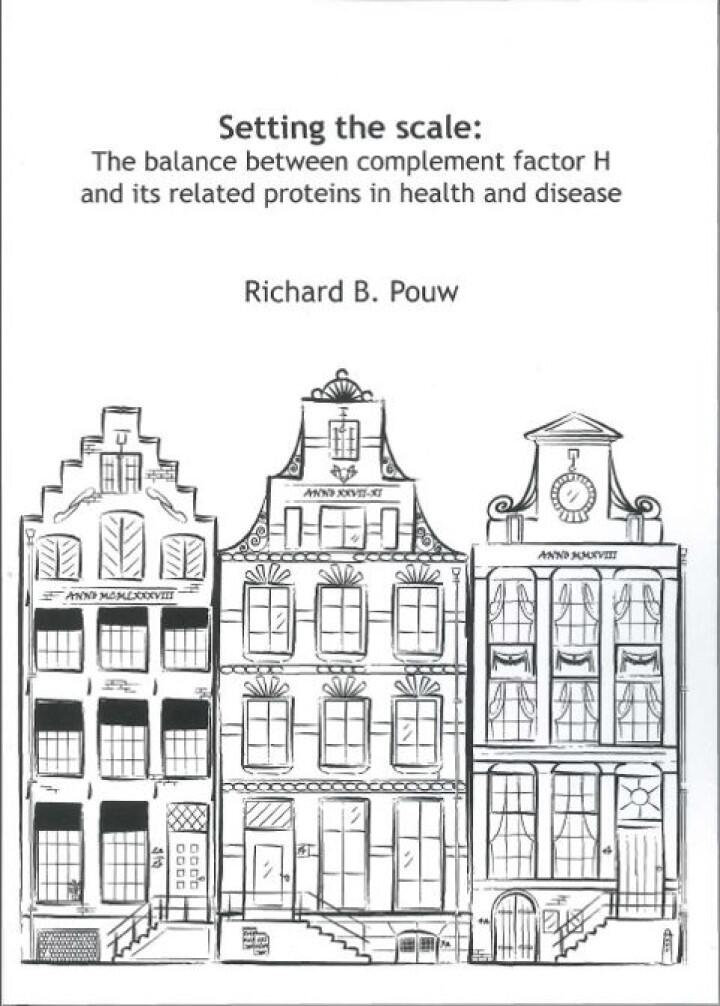Thesis Richard Pouw
On 27 November 2018 (14:00) Richard Pouw defended his thesis 'Setting the scale: The balance between complement factor H and its related proteins in health and disease' at the University of Amsterdam.
He was awarded his degree cum laude.
Promotor: Prof TW Kuijpers MD PhD
Co-promotor: D Wouters PhD
Venue: University of Amsterdam, Agnietenkapel
Summary

Complement is a crucial part of innate immunity and consists of proteins that circulate in blood and protect the body against pathogens that enter the bloodstream. In order to quickly detect and kill pathogens, complement is continuously active, causing it to ‘attack’ all cells it encounters. Under healthy conditions, human cells are protected against complement by regulators such as complement factor H (FH). If FH function is decreased, diseases like atypical hemolytic uremic syndrome (aHUS) can occur. Furthermore, to escape complement-mediated clearance, pathogens hijack FH. Humans also possess FH-related proteins (FHRs), which are thought to in turn regulate FH function. It is unknown how FHRs affect diseases like aHUS or the hijacking of FH by pathogens.
The research described in this thesis focused on FH and the FHRs during health, meningococcal disease (MD) and aHUS. The research led to the first determination of FHR levels in blood showing that FH is >60-fold abundant than FHR-3 and FHR-4A during health. FH and not FHR-3 was found to be a risk factor for MD, while increased FHR-3 levels were found in aHUS patients. The research has shown that FHR-3 plays a smaller role in MD than originally hypothesized. It also provides new tools and leads to investigate FHR proteins in various diseases. In addition, the research has led to the discovery of a new method to improve FH function, which has therapeutic potential in diseases in which FH function is decreased.
Chapters
Chapter 1
General introduction and scope of this thesis
Chapter 2
Characterization of novel anti-factor H antibodies reveals the role of factor H in protecting human erythrocytes from complement
Chapter 3
Antibody-mediated potentiation of complement regulator factor H protects human endothelial cells from complement attack in aHUS sera
Chapter 4
Complement factor H-related protein 3 serum levels are low compared to factor H and mainly determined by gene copy number variation in CFHR3 Abstract
Chapter 5
Complement factor H-related protein 4A is the dominant circulating splice variant of CFHR4 Abstract
Chapter 6
High complement factor H-related (FHR)-3 levels are associated with the atypical hemolytic uremic syndrome-risk allele CFHR3*B Abstract
Chapter 7
Variation in the CFHR3 gene determines susceptibility to meningococcal disease by controlling factor H levels
Chapter 8
Complement factor H and factor H-related protein 3 levels during infectious meningococcal disease
Chapter 9
Summarizing discussion
Download
Download PhD thesis (university repository)